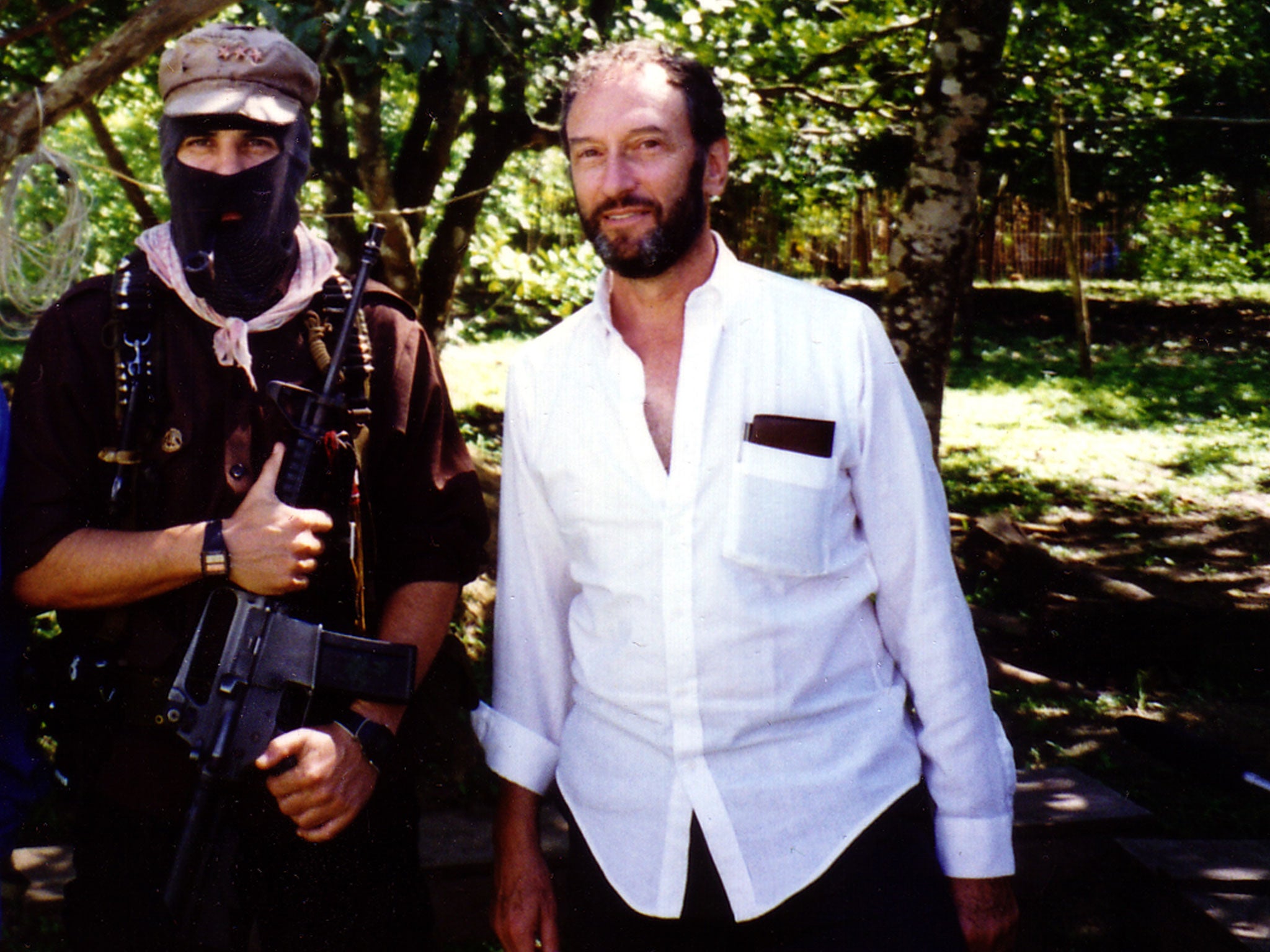
Your support helps us to tell the story
From reproductive rights to climate change to Big Tech, The Independent is on the ground when the story is developing. Whether it's investigating the financials of Elon Musk's pro-Trump PAC or producing our latest documentary, 'The A Word', which shines a light on the American women fighting for reproductive rights, we know how important it is to parse out the facts from the messaging.
At such a critical moment in US history, we need reporters on the ground. Your donation allows us to keep sending journalists to speak to both sides of the story.
The Independent is trusted by Americans across the entire political spectrum. And unlike many other quality news outlets, we choose not to lock Americans out of our reporting and analysis with paywalls. We believe quality journalism should be available to everyone, paid for by those who can afford it.
Your support makes all the difference.Saul Landau, an American documentary filmmaker best known for films on Cuba, Chile and atomic bomb testing, died of bladder cancer on Monday. He was 77.
Landau was most famous either for his 1968 documentary ‘Fidel’, which introduced American audiences to the man who brought communism to Cuba, or for 1979’s ‘Paul Jacobs And The Nuclear Gang’, an examination of the effects of radiation exposure on Nevadans living downwind of the US’ nuclear testing programme in the 1950s. The latter received a George Polk Award for investigative reporting.
By the end of his life, Landau had produced, written and directed more than 40 documentaries and had been working on a documentary about homophobia in Cuba at the time of his death.
A champion of left-wing causes, he made six films about Cuba in total, including ‘Fidel’, in which he accompanied the Cuban leader on a week-long tour of the country. He also directed two films on Chilean socialist leader Salvador Allende, two years before he was ousted by Augusto Pinochet.
Landau was also the author of 14 books. While most covered issues like radical politics, consumer culture and globalization, one of them, ‘My Dad Was Not Hamlet’, was a collection of poetry.
His documentaries tackled a variety of issues, but each contained one underlying theme: reporting on a subject that was otherwise going largely unnoticed at the time, whether it was American ghetto life, the destruction of an indigenous Mexican culture or the inner workings of the CIA.
"We tried to take on themes that nobody else was taking on and that were important," Landau said in July.
One of the documentaries Landau said he was most proud of was ‘The Sixth Sun: Mayan Uprising In Chiapas’, which looked at the 1994 rebellion by the impoverished indigenous people of southern Mexico. Landau travelled to Chiapas to interview, among others, the masked revolutionary leader known as Subcommandante Marcos.
The Fidel documentary came about after a brief meeting with Castro, who told Landau he had seen a news report he had done on Cuba the year before.
"He said he liked the film very much and asked me what my next film was going to be," Landau recalled. "I said, 'I'd like to do one on you'."
In 1971 Landau and fellow film-maker Haskell Wexler traveled to Chile for a rare US interview with Allende, who had just been elected his country's president and who would die two years later in a military coup.
A frequent commentator on radio and television in later years, Landau was also a professor emeritus at California State Polytechnic University, Pomona, where he taught history and digital media.
Although he made more than three dozen films, Landau, who graduated from the University of Wisconsin, Madison, said he never set out to be a film-maker.
"I didn't set out to be anything," he said in July. "I just fell into it."
Join our commenting forum
Join thought-provoking conversations, follow other Independent readers and see their replies
Comments